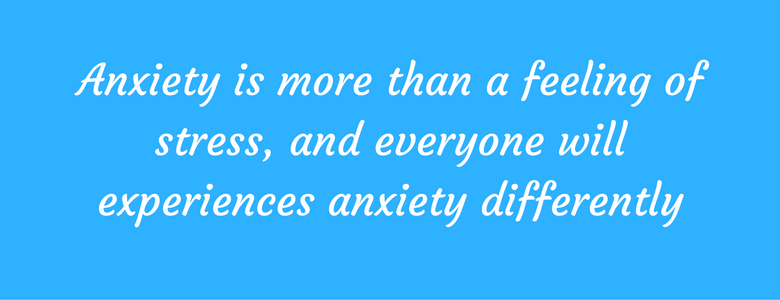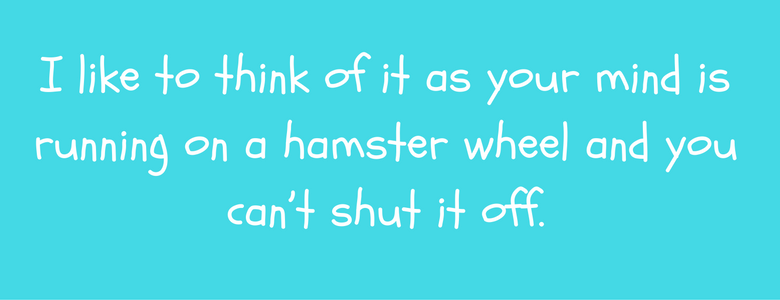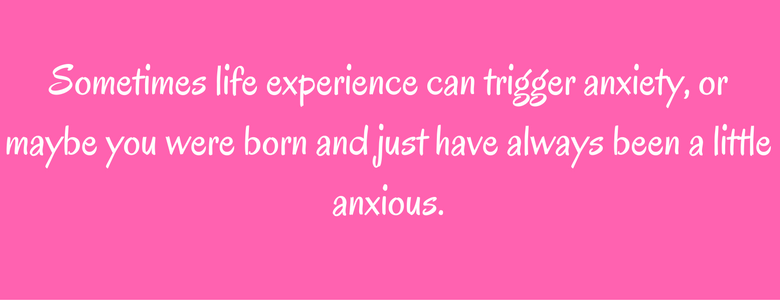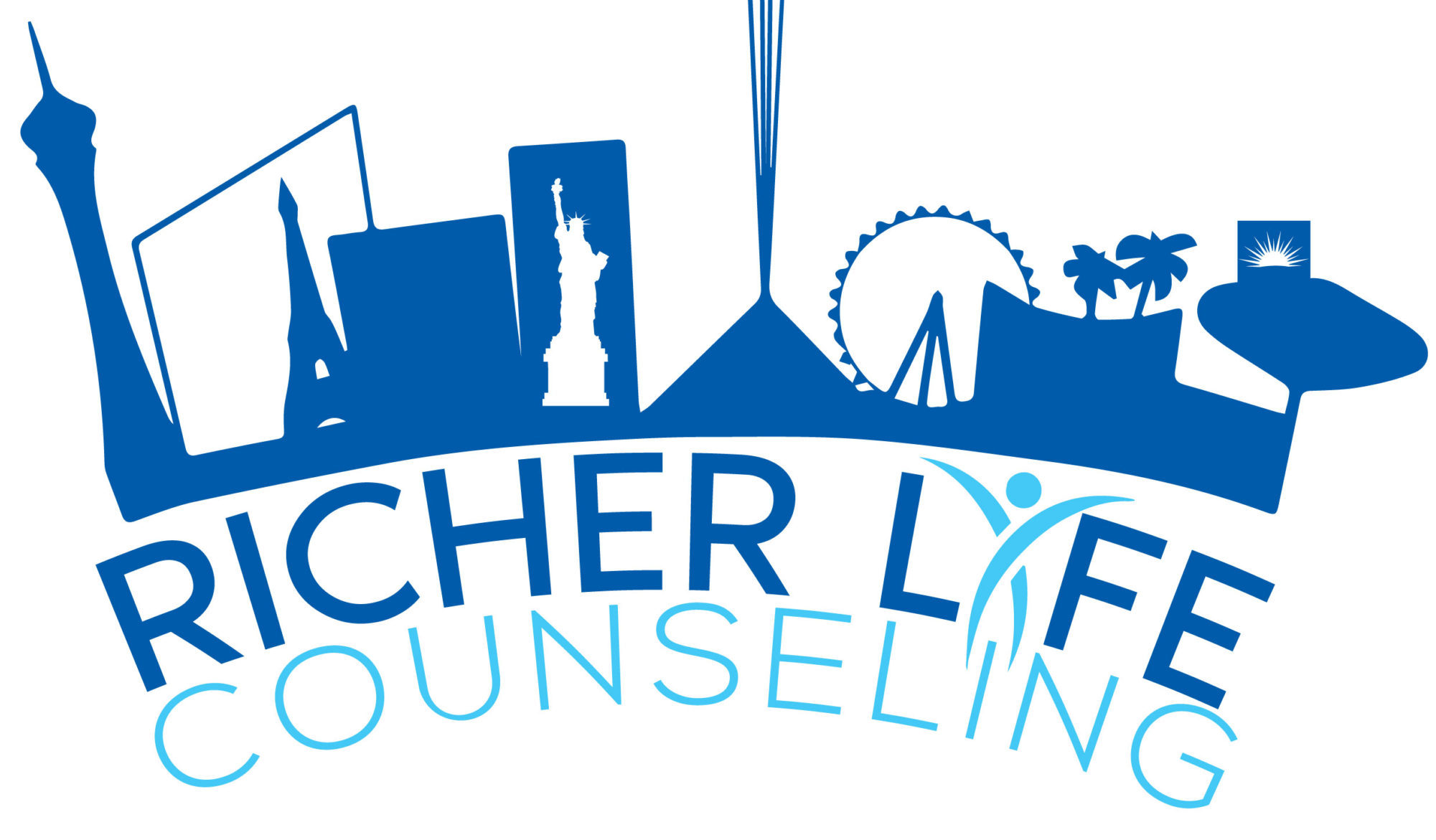As someone who grew up “shy” and somewhat anxious when dealing with people. I have had to learn where my social anxiousness came from, and how to deal with it. Because of this, I am able to relate and understand my clients better when they seek therapy with me regarding their anxiety.

Anxiety is more than a feeling of stress, and everyone will experiences anxiety differently. You might feel anxious when out in public, or when you are fighting with you partner. As a therapist, I help my clients learn about the different types of anxiety and the causes. If you would like to learn more about how I work with clients with anxiety issues click here.
What are the different types of anxiety?
Anxiety can form in many different ways, from feeling anxious about your next big vacation trip to feeling anxious on your next final exam. Having Anxiety is not just feeling nervous or stressed..
Some sign’s might include:
While there are many other physical symptoms that I have not mentioned, the above examples are the most common symptoms I encounter with my many of my clients. While anxiety might play a role in different types of issues, from substance abuse to relationship issues, I would like to address some of the major types of anxiety issues that people face day to day
“Is my anxiety really a disorder?”
Maybe your worries doesnot qualify as a “disorder” however, it might still be negatively impacting your life. Sometimes putting a label on what is happening to you can help you feel more in control. As you read through the major types of anxiety disorders, you’ll be able to learn and understand the differences in the disorders and how you can treat them when you start to recognize the disorder. Understanding and acknowledging the different types of anxiety is the first step to a healthier life
What are the different types of anxiety?
Generalized Anxiety Disorder
The most common type of anxiety, it affects millions of people throughout the world. The best way to think of this disorder is an ongoing feeling of mental or physical nervousness without being able to take a break. I like to think of it as your mind is running on a hamster wheel and you can’t shut it off.
You might feel yourself constantly worrying, stress, and this worrying is disrupting your life. It most likely feels like it appears for no reason at all, and you are unable to stop it once it starts.

Common Symptoms of Generalized Anxiety Disorder
Social Phobia
Not wanting to give a speech, or sing in front of a crowd are a normal type of social phobia. I suffer from a small degree of social phobia. Social phobia becomes a problem when fear starts to disrupt your life. You might feel like you cannot talk to anyone in public from people you know or don’t know. Becuase having a fear being judged, mocked, talked about or being avoided. Other fears might be about working with others, feeling you might bother other people if you talked to them or having a fear of embarrassing yourself or feeling dumb.
Common Signs of Social Phobia Include
If you feel like you’ve been avoiding things because it’s out in public, or because people might judge you, that might be signs of social phobia
Panic Disorder
Panic disorder (aka Panic Attacks) is not just “panicking” it is more than just worrying that you might lose your job, or something bad is going to happen. Panic disorder is when you have severe feelings of doom. These feelings of doom cause both mental and physical systems and can be so intent you might have to go to the hospital. Panic disorder is summed up by having panic attacks, and the fear of getting a panic attack.
Panic attacks (or anxiety attacks) are a physical and mental sensation that can be trigger by anxiety, stress or nothing that all.
Common symptoms of a Panic Attack Include
Panic attacks also have mental symptoms. Most these symptoms naturally last for 10 minutes however if you are an unable focus on calming down they can potentially last for longer.
Some of the mental symptoms include
Panic attacks can be scary because they seem to happen out of nowhere. It might be hard to figure out what the causes are. If youstart to experience any of these types of symptoms you should go seek help from a licensed professional in your area.
What causes these different anxiety issues?
We don’t fully know what the root cause of the anxiety disorders. It appears to have both environmental and biological (things that have happened to you through life experiences to your family genetic history) influence. Sometimes life experiences can trigger anxiety, or you are naturally anxious from birth.
Common environmental causes include

Risk Factors
What is the treatment for anxiety?
The most common treatments include medication or therapy. Both have been found effective however a combination of medication and therapy may also be effective. Click here to learn more about effective treatment for anxiety.
Most people with an anxiety disorder can find help and lower their systems with professional help. The success of treatment can take just a few sessions. You can read about the different type of medication for anxiety treatment here.
Therapy can help by using different types of therapy model call cognitive behavioral therapy. (CBT) summed up help you learn to change your automatic thoughts that start that hamster wheel running. Once you can start to understand you automatic thoughts you can then start to replace them. I help my clients learn how to challenge these negative thoughts and work to understand where they came from.
If you have struggled with any type of anxiety issues please leave a commit below on how you worked to get through it.
- Table Topics - June 25, 2020
- How to Apologize - June 11, 2020
- What is stonewalling? |TheRicher Marriage Show - June 5, 2020

